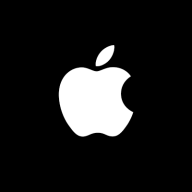

Xamarin Platform and Apple Xcode are frameworks in mobile app development, with Xamarin excelling in cross-platform capabilities and Apple Xcode providing strong native iOS support. Apple Xcode edges out Xamarin due to its seamless integration and robust features for iOS apps.
Features: Xamarin Platform facilitates cross-platform development with a single codebase for Android and iOS, integrates well with Visual Studio, and supports cloud-based testing. Apple Xcode offers a seamless environment for Apple products with extensive libraries and efficient debugging tools, providing strong iOS integration and optimization.
Room for Improvement: Xamarin could enhance support for third-party libraries and provide better integration with iOS-specific features. Additionally, its app size in debug builds can be significant, and support for specific features like PDFs can be limited. Apple Xcode could benefit from improved cross-platform support, easier adaptation for non-iOS devices, and more user-friendly documentation for new developers.
Ease of Deployment and Customer Service: Xamarin offers streamlined deployment with community support and integrates seamlessly with Visual Studio, catering well to Windows-based developers. Apple Xcode provides straightforward deployment, backed by direct Apple support, ensuring prompt issue resolution, making its customer support more reliable and responsive.
Pricing and ROI: Xamarin is cost-effective for those with Microsoft subscriptions, offering high ROI through a single codebase for multiple platforms. Apple Xcode is freely available but may incur additional costs due to Apple-specific hardware requirements, though its specialized tools justify expenses for exclusive iOS app development.
| Product | Market Share (%) |
|---|---|
| Xamarin Platform | 6.6% |
| Apple Xcode | 3.0% |
| Other | 90.4% |


| Company Size | Count |
|---|---|
| Small Business | 3 |
| Midsize Enterprise | 1 |
| Large Enterprise | 3 |
| Company Size | Count |
|---|---|
| Small Business | 18 |
| Midsize Enterprise | 5 |
| Large Enterprise | 14 |
Apple Xcode is a comprehensive suite of developer tools for producing programs for the Mac, iPhone, iPad, Apple Watch, and Apple TV. Xcode creates a streamlined workflow for user interface design, coding, testing, debugging, and app store submission.
Xcode is an IDE (integrated development environment) designed for both novice and expert developers to use, and it is the only tool that is officially supported for designing and uploading programs to Apple's app store. Xcode contains all of the tools required to construct an app in a single software package, including a text editor, a compiler, and a build system. It includes a number of tools to speed up the development process so that seasoned developers may produce apps with lightning speed and beginners can create apps with ease.
As a code editor, Xcode supports a wide range of programming languages, including C, C++, Objective-C, Objective-C++, Java, AppleScript, Python, Ruby, ResEdit, and Swift.
It employs the Java, Carbon, and Cocoa programming models.
Apple XCode Features
Apple XCode has many valuable key features. Some of the most useful ones include:
Reviews from Real Users
A founder of a tech vendor writes of the solution, “It was essential. You can't develop mobile apps for the Apple platforms without it. I would rate it a nine out of 10 for its consistency. It keeps evolving.”
Xamarin is an open-source platform for developing modern and performant applications for iOS, Android, and Windows using.NET. Xamarin is an abstraction layer that manages how shared code is communicated to the platform's underlying code. Xamarin is for developers with the two following goals:
Cross-platform sharing of code, tests, and business logic.
Writing cross-platform apps in C# with Visual Studio.
Xamarin allows developers to share an average of 90% of their program across platforms. This enables programmers to achieve native performance, look, and feel on each platform while writing all of their business logic in a single language (or reusing existing application code).
Xamarin applications can be created on a PC or a Mac and compiled into native application packages, such as an .apk file for Android or an .ipa file for iOS.
Xamarin Platform Features
Xamarin Platform has many valuable key features. Some of the most useful ones include:
Xamarin Platform Benefits
There are many benefits to implementing the Xamarin Platform. Some of the biggest advantages the solution offers include:
We monitor all Mobile Development Platforms reviews to prevent fraudulent reviews and keep review quality high. We do not post reviews by company employees or direct competitors. We validate each review for authenticity via cross-reference with LinkedIn, and personal follow-up with the reviewer when necessary.